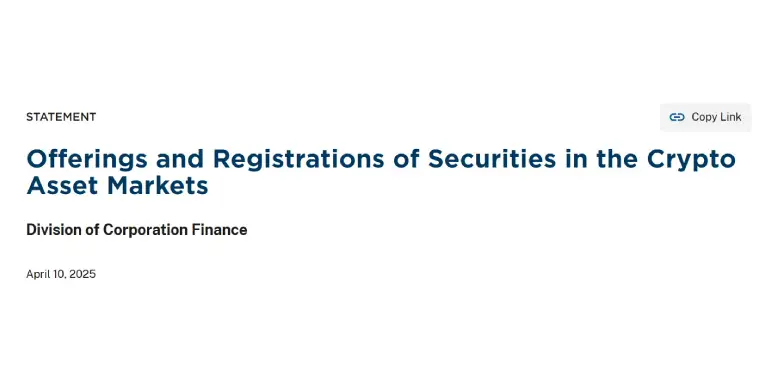The United States Securities and Exchange Commission (SEC) is making constant efforts to regulate the cryptocurrency industry with roundtable meetings and discussions. The agency is set to hold its second roundtable today, April 11, 2025 which is titled as “Between a Block and a Hard Place: Tailoring Regulation for Crypto Trading.”

Second Crypto Roundtable Details
The discussion will be held at the agency’s headquarters and the event will bring together industry leaders, academics, and regulators to discuss the challenges of crafting regulations for crypto trading platforms.
Commissioner Hester M. Peirce, head of the SEC’s Crypto Task Force, has time and again emphasized the importance of public engagement in shaping clear and fair rules for the cryptocurrency market.
Panelists include representatives from Uniswap Labs, Coinbase, UC Berkley and the New York Stock Exchange. The roundtable events includes people from all the sectors so that each and every pain point can be put forward and discussed during the meeting.
The main goal of these roundtables is to provide clarity on crypto regulations that allow crypto innovation while protecting investors by ensuring transparency. This event is a part of a broader initiative known as the “Spring Sprint Toward Crypto Clarity.”
In the upcoming roundtables, custody will be discussed on April 25, tokenization will be discussed on May 12, 2025 and decentralized finance will be discussed on June 6, 2025.
SEC Issues Guidance on Disclosure
This roundtable follows the agency’s Division of Corporation Finance recent release of detailed guidance on disclosures required for offerings and registrations of crypto asset securities. The guidance highlights the expectations set for the issuer regarding its business descriptions, risk factors, technical specifications and the financial statements.

The new guideline recommends tailored disclosures that reflects an issuer’s specific operations, addressing risk management that is specific for crypto assets (such as price volatility and cyber protection), and providing clarity on functionality of the token.
The agency has also emphasized and highlighted the importance of transparent governance structures and technical audits that will be needed for blockchain networks.
With these changes it is clear the agency is taking more collaborative approach to regulate cryptocurrencies, engaging with stakeholders through roundtables and refining disclosure requirements to balance innovation along with investor protection. It is being anticipated that with these changes investor confidence might increase and would support growth within crypto industry
Also Read: Alephium Reveals Weekly Developments and Ambassador Program


